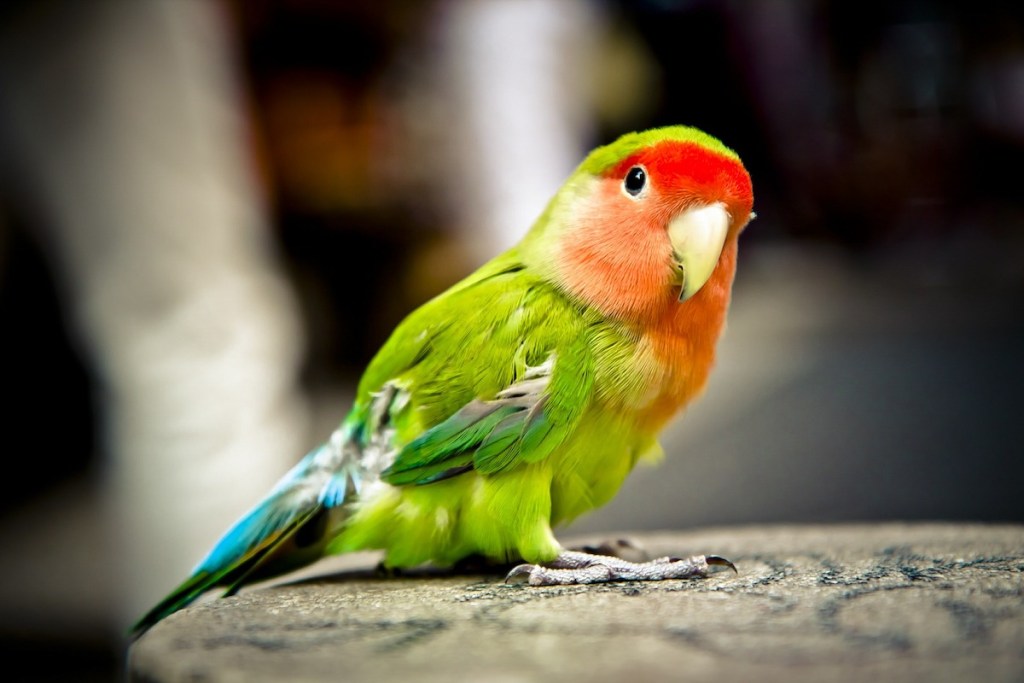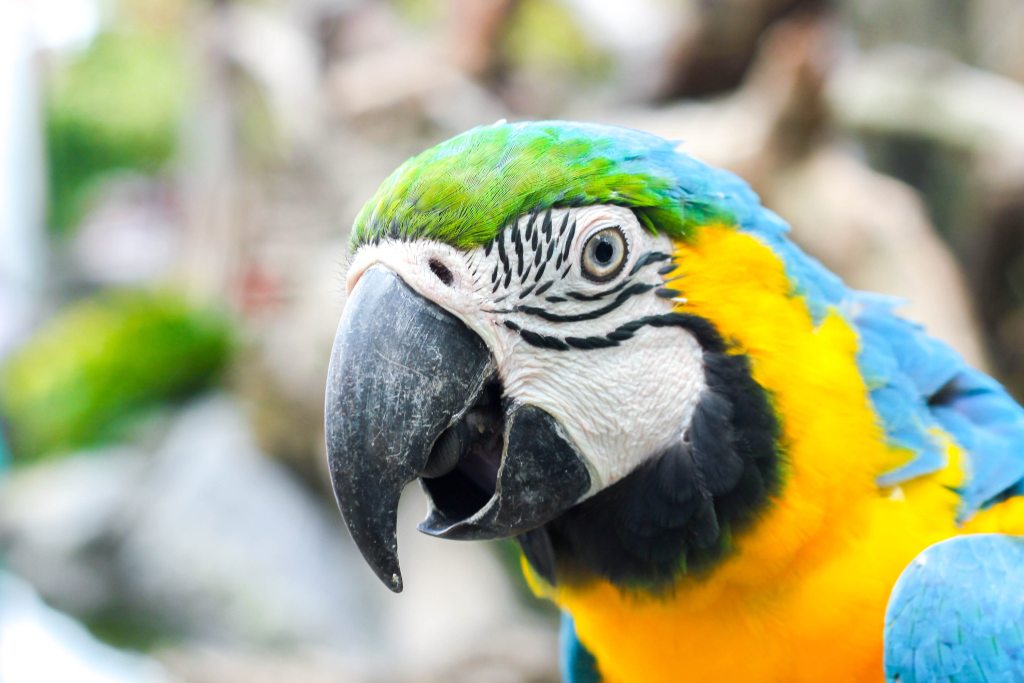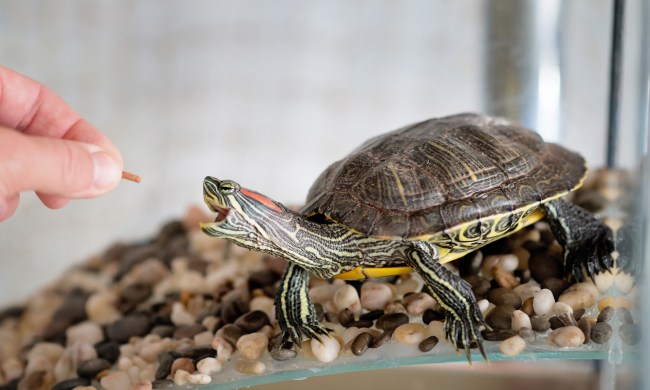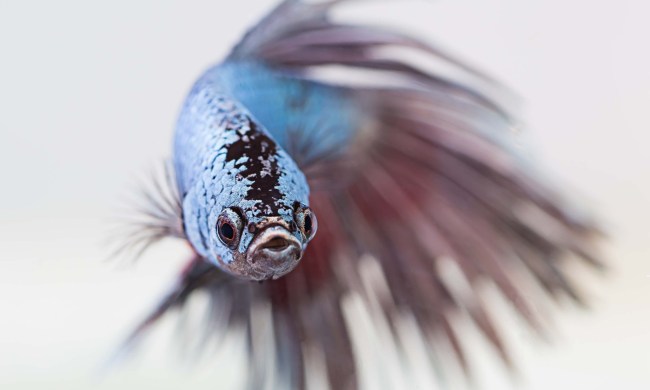One of the best parts of owning a pet bird is having meaningful conversations with your animal — well, sort of. Lots of birds can talk (or say a few words at any rate) especially many species of parrots. Teaching your bird to speak will take time and lots of practice. It’s really repetition, repetition, repetition. But first, you’ll need to decide which words you want him to learn and, of course, repeat. Here are the words you should make sure they can say … and a few to leave off the list.

What to teach your bird
These are the best words to teach your bird to say.
His name
It’s cute to listen to your bird say his name, and it can help capture his attention when you call. Just like with a dog or cat, you should get your new avian to respond to his new moniker. Once he picks it up, try getting him to come when you call. This is both helpful and fun.
Hello
You won’t need to try too hard on this one. While a good training regimen will ensure that your bird picks up words quickly, you will almost certainly say hello to your bird, and trust us, he’ll catch on quickly. Just be prepared to hear it 100 times per day once he knows this greeting.
Food
Stick with the generic here with “food,” “I’m hungry,” or “lunch,” or figure out his favorite dish and teach him the word for that. African grays and some macaws are so intelligent, they can learn to ask for a snack when they feel hungry. But don’t fall for it if he asks for food constantly. He’s just thinking out loud.

Sing
Your bird was basically born knowing how to sing. If he’s particularly musically inclined, get him to tell you when he wants to crank out a duet or tweet along to his favorite song. Encourage this yodeling from a young age, which will perfect his pitch.
Mom/Dad
Or your own preferred term of endearment. It’s extra cute when your bird calls out to you for playtime. He can learn your name just as easily as he can learn his own and will also figure out how to distinguish between different members of the household.
Good night
Not only will this serve as a great routine for you, but it also can condition your pet to settle down for the evening. Just as with hello, you won’t need to put in a lot of work to pass on this phrase — he’ll pick it up when you wish him sweet dreams. Double the points if he says it when you turn out the lights.
What not to teach your bird
Just as there are some words every parrot needs to know, there are some that should be kept off the menu. Don’t teach your bird these unless you want them screamed at you on a daily basis (and at the worst possible moment):
Shut up
It’s tricky. You want your bird to stop talking and say so. Oops. Now, he won’t stop telling you to be quiet. Remember, birds respond better to positive reinforcement than negative. He most likely hears you telling him to stop talking as just another game. Best to ignore your feathered friend until he calms down.
Cusswords
It seems obvious, but the second you slip and utter a curse, your bird’s sure to pick it up. Foulmouthed pets often struggle with being adoptable later in life, too. If you catch yourself starting to say a bad thing, switch to a shh. Your bird can’t really reproduce this sound and will drop it quickly.
No
Sometimes this is inevitable, but if you tell your bird no too often, it’s all you’ll hear back. You’ll most likely find it works better to ignore or distract your bird when he exhibits bad behavior that you want to curb. Always speak gently to your pet and consider using a less catchy phrase to express your displeasure.
Don’t forget, one of the reasons parrots start swearing or picking up other bad language is that it gets such a big reaction. If you mess up and he repeats an unfortunate word, ignore him every time. Don’t even correct him, as he may enjoy negative attention, especially if you secretly think it’s funny. On the flip side, reward excellent pronunciation with lots of pets and treats. You’ll raise an immaculate conversationalist in no time.



